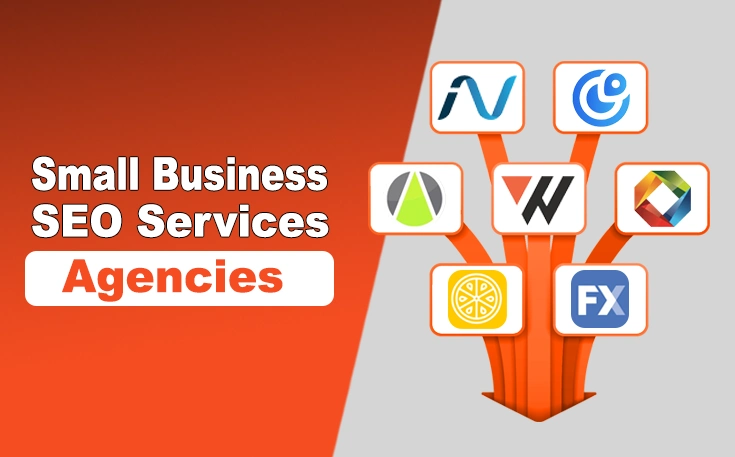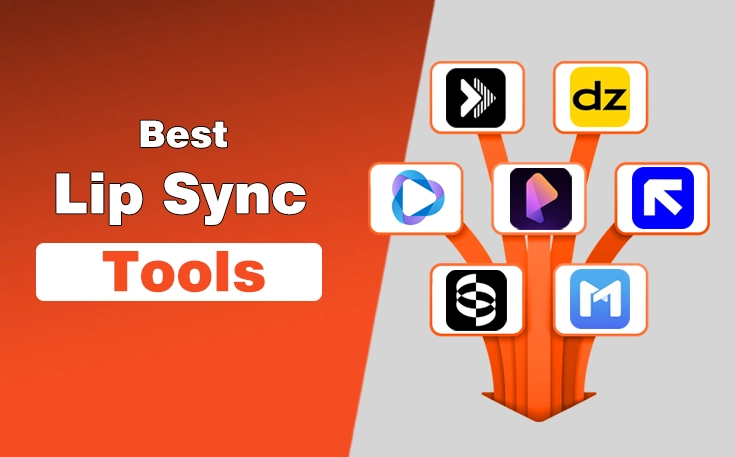Have you ever wondered how people make money online while they sleep, travel, or sip coffee at their favorite cafe? Welcome to the world of affiliate marketing, a business model that empowers individuals to earn passive income by promoting products and services they genuinely believe in.
Whether you’re a stay-at-home parent, a student, or someone looking to escape the 9-to-5 grind, affiliate marketing offers a flexible and low-risk path to financial freedom.
According to BrandSage affiliate marketing statistics, 84% of publishers use affiliate marketing to raise brand recognition and the industry is expected to reach $48 billion by 2027.
As a beginner, pursuing a career in this field is both difficult and easy. There are a lot of important points you should know about.
In this guide, learn what is affiliate marketing, how does it works, examples, types, how to get started and make money.
Let’s start.
<strong>What is Affiliate Marketing?</strong>
Affiliate marketing is a performance based marketing model where individuals (affiliates) earn commissions by promoting products or services of companies (merchants or advertisers).
The affiliate shares a unique tracking link with their audience, typically through a blog, social media, email, or website and earns a commission when someone makes a purchase or completes a desired action (like signing up) through that link. For example, if you are doing affiliate marketing on Pinterest and share your link in a product’s bio, so when one of your followers buys through your link, you will earn a specific commission.
Affiliate marketing is a beginner-friendly, low-risk way to start earning online. With the right effort and strategy, it can become a solid stream of income and even a full-time business over time.
In simple terms: You recommend, they buy, you earn.
📊 Key Affiliate Marketing Statistics
1. 81% of brands use affiliate marketing programs to reach new audiences.
2. Affiliate marketing spending in the U.S. is expected to reach $13 billion by 2025 (Statista).
3. Only about 10% of affiliates make more than $50,000 per year, but they often focus on building content-rich websites and long-term strategies.
4. Top affiliate marketers (like bloggers, YouTubers, and SEO experts) can earn $10,000–$100,000+ monthly, especially in high-paying niches like finance, tech, and software.
<strong>How Does Affiliate Marketing Work</strong>
Affiliate marketing works through a simple process that connects three main parties: the merchant (or seller), the affiliate (you), and the customer. Here’s how it all comes together:

- You Join an Affiliate Program:
You sign up for an affiliate program offered by a company or through an affiliate network like Amazon Associates, ShareASale, or ClickBank. - You Get a Unique Affiliate Link:
After joining, you receive a special tracking link that is unique to you. This link tells the merchant where the traffic or sale came from. - You Promote the Product or Service:
You share your link with your audience on a blog, YouTube channel, social media, email list, or website with helpful content or honest reviews. - The Customer Clicks and Buys:
When someone clicks your affiliate link and makes a purchase (or completes another action, like filling out a form), the system tracks that activity. - You Earn a Commission:
You get paid a percentage of the sale or a fixed amount, depending on the program’s terms. The merchant handles the transaction and delivery; you just get rewarded for referring the customer.
<mark style="background-color:#f2f2f2" class="has-inline-color has-vivid-cyan-blue-color">❝</mark>
Example: You write a blog post reviewing a fitness tracker and include your affiliate link to buy it. A reader clicks the link, buys the tracker, and you earn a commission without managing inventory or customer service.
<strong>Is Affiliate Marketing Legit?</strong>
Yes, affiliate marketing is absolutely legit. It’s a recognized and trusted business model that most of the biggest companies use in the world, including Amazon, Shopify, and Bluehost, to drive sales and expand their reach through trusted recommendations.
Here’s why affiliate marketing is legitimate:
- Backed by Major Brands: Reputable companies run official affiliate programs with clear terms, tracking systems, and reliable payment structures.
- Performance-Based: Affiliates only earn money when they generate real results (like clicks, leads, or sales), which makes it a fair system for both parties.
- Transparent and Trackable: Unique affiliate links and tracking cookies ensure all transactions are monitored, so commissions are accurately recorded.
- Regulated and Ethical: In most countries, affiliates are required to disclose their relationship (like using “affiliate link” disclaimers), which adds transparency and trust.
<mark style="background-color:#f2f2f2" class="has-inline-color has-vivid-cyan-blue-color">❝</mark>
Note: While affiliate marketing is legitimate, there are scams and fake “affiliate programs” out there. Be cautious of schemes that require upfront fees, promise guaranteed income, or pressure you into recruiting others without a real product.
<strong>Why You Should Start Affiliate Marketing?</strong>
Affiliate marketing is one of the most accessible and rewarding ways to earn money online, especially if you’re just starting out. Here’s why you should seriously consider diving into it:
1. Low Start-Up Costs
Unlike traditional businesses, affiliate marketing doesn’t require you to create a product, hold inventory, or handle shipping. All you need is an internet connection, a platform (like a blog or YouTube channel), and the motivation to start.
2. Flexibility and Freedom
You can work from anywhere, at any time. Whether you’re a student, a stay-at-home parent, or working full-time, affiliate marketing fits around your schedule. You’re your own boss.
3. Passive Income Potential
Once you’ve set up content with affiliate links, it can keep earning you money long after it’s published. One well-written blog post or viral video can generate income for months or even years.
4. Scalable Earnings
There’s no cap on how much you can earn. As your audience grows and your marketing skills improve, so does your income potential. You can promote more products or enter new niches.
5. No Customer Support Needed
Since you’re not selling your own product, you don’t have to deal with complaints, refunds, or customer questions. The merchant handles all of that you just focus on driving traffic.
6. Risk is Low
You’re not investing thousands of dollars upfront. Many affiliate programs are free to join, which means you can test and learn without significant financial risk.
<strong>Types of Affiliate Marketing </strong>
Affiliate marketing isn’t a one-size-fits-all model. In fact, it comes in different types based on how involved you are with your audience and how you promote products. Understanding these types helps you choose the best strategy that fits your style and goals.
Here are the main types of affiliate marketing:
1. Unattached Affiliate Marketing
This is the most hands-off form of affiliate marketing. You promote products without having a direct connection to your audience or the product.
- Example: Running paid ads (like Google Ads) that lead to an affiliate offer, without ever showing your face or creating content.
- Pros: Quick to set up, doesn’t require a personal brand or audience.
- Cons: Less trust and higher ad costs; success depends heavily on ad performance.
2. Related Affiliate Marketing
You promote products that are connected to your niche or area of expertise, even if you haven’t personally used them. You have some influence or following in a niche and recommend tools, services, or products that match your content.
- Example: A tech blogger recommending gadgets or apps they find useful.
- Pros: Builds relevance and trust; easier to gain traction with your content.
- Cons: Can lose credibility if you promote low-quality products just for commissions.
3. Involved Affiliate Marketing
This is the most trusted and powerful form of affiliate marketing. The affiliate uses the product, has personal experience, and provides authentic reviews or recommendations.
- Example: A fitness YouTuber reviewing a protein powder they actually use in their routine.
- Pros: Builds strong trust with your audience; higher conversion rates.
- Cons: Requires time and real product experience before promoting.
💡Pro Tip
If you’re just starting out, related or involved affiliate marketing is often the best approach. It builds long-term credibility and a loyal audience who trusts your recommendations.
<strong>How to Get Started with Affiliate Marketing</strong>
Getting started with affiliate marketing is simple, even if you have no prior experience. Here is a process about how to get started with affiliate marketing.
1 – Choose Your Niche
Firstly, you have to select the right niche as it is pretty crucial to determine the success of your journey. A good niche should be:
- Profitable: Have products with good commission rates.
- Evergreen or Trending: Either have long term demand or capitalize on emerging trends.
- Aligned with Your Interests: You will find it easier to create content if you are passionate about the topic.
Some profitable niches include:
- Technology and gadgets
- Health and fitness
- Personal finance
- Beauty and skincare
- Online education and courses
2 – Find Affiliate Programs
Once you have a niche, you need to find the best affiliate marketing programs and pick the that widely suit your preferences and requirements. Some common options include:
- Amazon Associates: Offers commissions on a wide range of products.
- ShareASale: A marketplace for multiple affiliate programs.
- CJ Affiliate (Commission Junction): Works with large brands and retailers.
- ClickBank: Specializes in digital products and high commission offers.
- Individual Brand Programs: Many companies, like Bluehost and Shopify, have their own affiliate programs.
Check out the user for each popular affiliate marketing program:

3 – Build a Platform
Next, you have to build a platform where you can promote the products you have picked for affiliate marketing. The platform allows you to attract and engage the audience and compel them to make a purchase. The most common options include:
- Blog or Website: A content rich website with SEO friendly articles attracts organic traffic.
- YouTube Channel: Having a YouTube channel for Video content is highly effective for product reviews and tutorials.
- Social Media Platforms: Instagram, TikTok, Pinterest and Facebook can be powerful social media platforms for affiliate promotions.
- Email Marketing: Building an email list allows you to promote products directly to interested subscribers.
4 – Create High Quality Content
The success of your affiliate marketing strategy depends on how well you can create content that drives traffic and conversions. While high quality content is necessary, you have to maintain its authenticity to make sure you can follow the Google E-E-A-T guidelines. In this way, you can take your affiliate marketing websites to an advanced level. Some content ideas include:
- Product Reviews: Honest and detailed reviews help build trust.
- Comparison Articles: Side by side comparisons help buyers make informed decisions.
- Tutorials and How To Guides: Show how a product solves a problem.
- Listicles (Best of X Products): “Top 10 Laptops for Students.”
- Case Studies: Share real results to gain credibility.
4 – Drive Traffic to Your Affiliate Links
Traffic is the lifeblood of affiliate marketing. You can use various methods to drive visitors to your links. Some of them are below:
- Search Engine Optimization (SEO): SEO help you optimize content to rank on Google.
- Social Media Marketing: Share your content on platforms like Instagram, Twitter, and Pinterest.
- Paid Advertising: Use Google Ads, Facebook Ads, or native ads to reach a larger audience.
- Email Marketing: Build a list and send promotional emails.
- YouTube Marketing: Create engaging video content and include affiliate links in the description.
5 – Optimize for Conversions
Getting traffic is not enough. You need to turn visitors into buyers so that they can make a purchase and you will earn a targeted commission. Here is how:
- Use Call to Actions (CTAs): Encourage users to click your links.
- Improve Website Speed and UX: A slow or poorly designed site can drive visitors away.
- Build Trust: Be transparent about affiliate links and only recommend products you genuinely believe in.
- A/B Testing: Experiment with different headlines, CTAs, and layouts to see what works best.
6 – Track and Analyze Performance
To improve your earnings, you need to analyze your performance. Tools like Google Analytics, affiliate dashboards, and tracking plugins help you understand:
- Which products are selling the most
- Where your traffic is coming from
- What type of content performs best
These insights will enable you to adjust your strategy and overcome the critical flaws and issues. In this way, you can make efforts in the right direction to maximize profits.
<strong>How Much Does an Affiliate Marketer Earn</strong>
Affiliate marketing income can range from a few dollars a month to six-figure incomes or more, depending on your experience, niche, traffic, and strategy. While it’s not a get-rich-quick scheme, many people have turned affiliate marketing into a full-time business.
Let’s break it down.
Average Earnings Based on Experience
According to data from Authority Hacker and Glassdoor, here’s what affiliate marketers typically earn:
| Experience Level | Monthly Income (USD) | Annual Income (USD) |
| Beginners (0–1 year) | $0 – $1,000 | $0 – $12,000 |
| Intermediate (1–3 years) | $1,000 – $10,000 | $12,000 – $120,000 |
| Advanced (3+ years) | $10,000+ | $120,000+ |
Realistic Income Expectations
- In the first few months: Most beginners earn little to nothing as they learn and build.
- After 6–12 months: You can start earning a few hundred to a few thousand dollars/month with consistent content and traffic.
- After 1–3 years: With proper SEO, email marketing, and niche targeting, you can scale to a full-time income or more.
<strong>Affiliate Marketing Examples (Real-Life & Practical)</strong>
Affiliate marketing is all around you, from your favorite blogs to YouTube videos and social media influencers. To help you better understand how it works in the real world, here are some practical examples of affiliate marketing in action:
1. Blogging Affiliate Example
Niche: Tech Reviews
A tech blogger writes a review titled “Top 5 Wireless Earbuds in 2025”. Each product mentioned includes an affiliate link to Amazon. For example, we run a blog, Nogentech, where we are an Amazon affiliate and review products to earn commission. When a reader clicks and buys one of these products, the blogger earns a commission.
2. YouTube Affiliate Example
Niche: Fitness
A fitness YouTuber posts a video titled “Best Home Workout Equipment Under $100”. In the video description, they include affiliate links to dumbbells, resistance bands, and yoga mats. Viewers who purchase via those links generate affiliate income for the YouTuber.
3. Instagram Influencer Affiliate Example
Niche: Fashion
An influencer posts a photo wearing a branded outfit and captions it: “Get this look – Link in bio!” The link leads to an affiliate shop online, where every purchase made earns them a commission.
4. Email Marketing Affiliate Example
Niche: Online Tools for Creators
A digital marketer sends a weekly newsletter recommending tools like ConvertKit or Canva Pro. They include affiliate links and earn money when subscribers sign up for free trials or paid plans.
5. Coupon/Deal Website Example
Niche: E-commerce Discounts
Websites like Honey or RetailMeNot list promo codes and offers from various online stores. When users click through and shop using those codes, the site earns affiliate commissions.
6. Software Review Site Example
Niche: SaaS / Tech
A website like HostingAdvice.com compares web hosting services and includes affiliate links to Bluehost, SiteGround, or HostGator. Every signup generates a referral commission.
<strong>Top Affiliate Marketing Tools For Beginners</strong>
To succeed in affiliate marketing, it’s important to use the right tools for tracking, content creation, SEO, link management, and analytics. Here are some of the best affiliate marketing tools (many are beginner-friendly and free to start with):
- Ahrefs – Powerful SEO suite for keyword research, backlink tracking, and site audits.
- SEMrush – All-in-one digital marketing tool for SEO, PPC, and competitor analysis.
- Google Analytics – Track website traffic, user behavior, and conversions.
- ConvertKit – Designed for creators and bloggers with automation features.
- Canva – Create graphics, thumbnails, social posts, and lead magnets.
- Grammarly – Improve grammar and clarity in your blog posts and emails.
- Voluum – Advanced tracking tools for paid traffic and split testing.
- Google Keyword Planner – Free tool for basic keyword research.
- ThirstyAffiliates – Another powerful link manager for WordPress users.
- Google Tag Manager – Manage tracking codes on your site without touching code.
- Pretty Links (WordPress plugin) – Cloak long URLs, track clicks, and organize links.
<strong>Final Thoughts</strong>
These are the details about the affiliate marketing guide for beginners and how it can be done to earn money. I have created this ultimate guide so that beginners will get to know the key tactics to choose the right niche and create valuable content that will let them engage the targeted audience and turn them into customers.
You can grow a profitable affiliate business by choosing the right niche, creating valuable content, and driving traffic to your affiliate links. Whether you are a beginner or an experienced marketer, following the steps in this guide will help you succeed in the world of affiliate marketing.
<strong>People Also Ask</strong>
Is Affiliate Marketing a profitable field?
Yes. It can be a very profitable field if you find a good-paying company and sell more products.
Do I need a high fan following to join this field?
A high fan following can be helpful. However, it’s not an absolute necessity to make a living in it.
What type of content I should make for marketing in this way?
Creating persuasive yet genuine content is the best practice for this field of work.
Need custom app with amazing features?
Get a Quote




